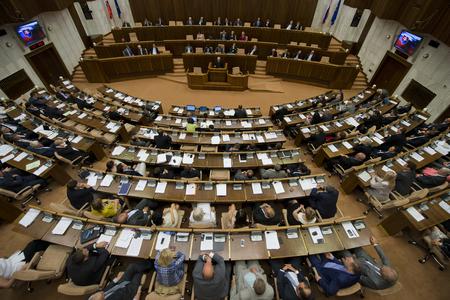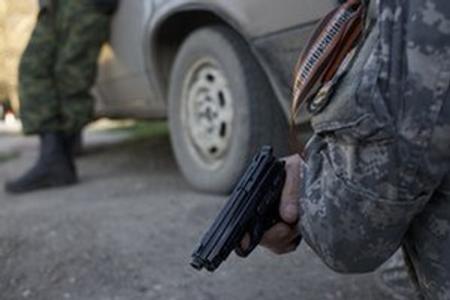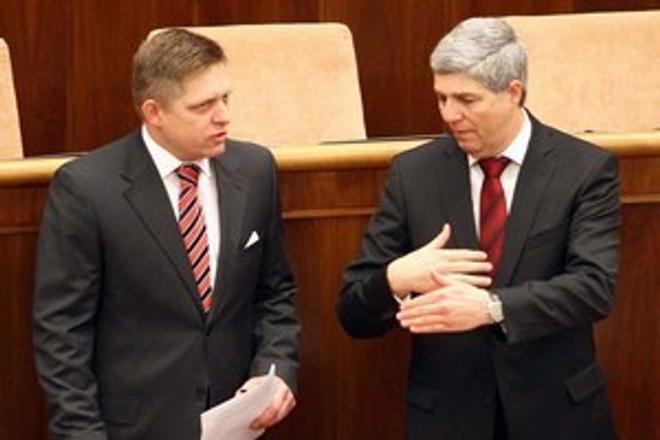Less than one month after the November 13 terrorist attacks in Paris, the Slovak government has beefed legislation, granting more powers to police and intelligence services, among other things.
“Migration is linked with terrorism,” Prime Minister Robert Fico said as he introduced the set of anti-terrorism measures, adding that it is “incumbent on us to respond to the threats and to the EU’s failure by taking our own action” and that every country in the EU is adopting stringent measures.
In parliament
Parliament devoted much of its session at the turn of November and December to the so-called anti-terrorist package, which the government proposed in a fast-tracked procedure that bypasses interdepartmental review. The cabinet passed the package on November 27 and MPs cleared it December 9 after a heated and prolonged parliamentary debate.
The opposition used the parliamentary debate to criticise the ruling Smer party, accusing it of introducing unnecessary measures for the purposes of political marketing. Fico did not attended the parliamentary debate and Interior Minister Robert Kaliňák showed up only briefly. The opposition criticised such an approach, saying that they should have shown more interest in the vote on making changes to a main law of the state.

Parliament was originally expected to vote on the amendments December 8, but was unable to do so until the day after, as opposition MP Daniel Lipšic blocked a vote. Discontent with the fact that no minister with a relevant portfolio was present for the discussion, Lipšic spent hours reading passages from the bill.
Accusations of campaigning
The main concern voiced by the opposition and analysts is that the increased security measures should also be accompanied by a strengthened control mechanism, to prevent potential abuse.
“The unrestricted strengthening of state powers over the people means a path towards a police state," said non-parliamentary Sieť leader Radoslav Procházka.
Most-Híd maintains that the package of anti-terrorist measures is unacceptable, because it does not balance well the security and the protection of privacy of individuals.
“We did not take into consideration all the circumstances that need to be considered, including the control of the potential abuse of the legislation,” security analyst Jaroslav Naď told The Slovak Spectator.
Parliament’s Speaker Peter Pellegrini accused the opposition of scaremongering.
“We've never crossed the boundary of the right to freedom and right to security in this state,” he said as quoted by the TASR newswire.

Slovakia does need to react to a terrorism threat in the EU, possibly with a legislative change. But the security situation in the country hasn’t changed so much that the government would need to react immediately, passing a set of measures in a fast-tracked procedure, Naď said. He maintains that there should have been more room for expert discussion before the measures were proposed.
Opposition and experts agree that the proposed anti-terrorist legislation is a campaign issue for the ruling party that has made “We protect Slovakia” its key campaign message.
Constitutional changes
Despite criticism of the anti-terrorist package as a whole, Most-Híd voted in favour of an amendment to the constitution, which Smer would not be able to pass on its own, having only 83 of the required 90 votes in the parliament. With 95 votes MPs approved the change to the constitution on December 8. The proposal was approved by MPs from Smer, the opposition Most-Híd and Independent MPs Miroslav Kadúc and Štefan Kuffa. The rest of the opposition either abstained or voted against the motion.
After the changes are applied, the detention time for terrorism suspects will be prolonged from the current 48 hours to 96 hours.
The government also originally proposed prolonging the deadline for the judge to hear and decide on further detention of a detained suspect from the current 48 hours (or 72 hours for extraordinarily grave crimes) to 144 hours for crimes linked to terrorism. But Most-Híd conditioned its support by dropping that change from the amendment.
“We do the things that are right and needed even if they are not always necessarily popular,” Bugár said.
Most-Híd criticised
The decision by Most-Híd came as a surprise, since from the start of the migration crisis it has been the only opposition party that did not shy away from strong statements criticising the Fico’s anti-migrant rhetoric.
KDH Chairman Ján Figeľ noted after the vote that Most-Híd very easily formed a qualified majority with Smer to push through the constitutional changes. Speaking with the SITA newswire, Figel criticised Most-Híd for not insisting on a return favour from Smer: support for the constitutional amendment that was to change the retirement age of judges, which KDH and Most-Híd drafted together.
Following the vote, Lucia Žitňanská explained in a post on her Facebook page that Most-Híd consulted the constitutional change with experts and felt the measure was needed, as similar detention times are applied in most other European countries.
“It is in no way connected with the support of Smer and their hateful politics,” Žitňanská wrote. “Fico has ignored the security issues in the long run, but that should not mean that we should ignore a potential sensible proposal for a change in this area in return.”
Though Most-Híd supported the constitutional amendment, political analyst Grigorij Mesežnikov said he does not believe that this necessarily makes them a potential Smer coalition partner after the election.
“I definitely do not consider it a sign of their preparedness to cooperate with Smer after elections,” Mesežnikov told The Slovak Spectator.
Radka Minarechová contributed to this report.



 Robert Fico and Béla Bugár (source: Sme)
Robert Fico and Béla Bugár (source: Sme)